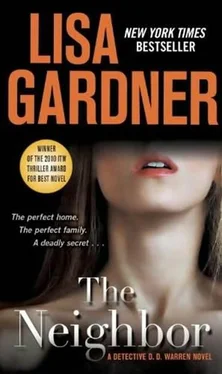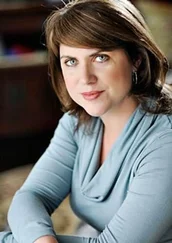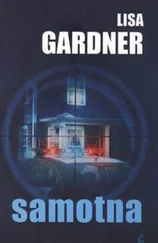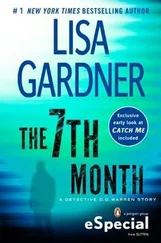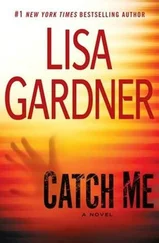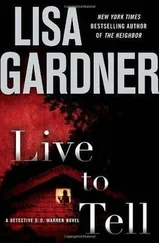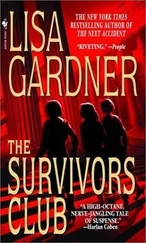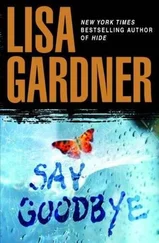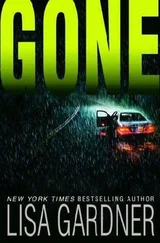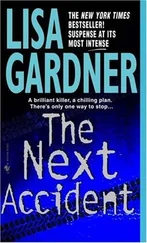“I don’t know if that will matter,” I say now. “A registered offender is a registered offender. I think they’ll arrest first, ask questions later.”
“No,” Gary the investment manager interjects. “They’ll visit your parole officer first. That’s how it works.”
My parole officer. I blink in surprise. I have totally forgotten about her. I’ve been on parole two years now, and while I am required to check in each month, my own behavior has been so constant I’ve stopped noticing the meetings. Just another bout of paperwork and dutifully signed forms. Guy like me, the whole thing is over and done in about eight minutes. I copy my pay stubs, hand over a letter from my treatment counselor, prove I’ve paid my weekly fees for counseling, etc., and we’re good to go for another thirty days.
“What d’you think your PO will say?” Wendell asks now, eyes narrowing.
“Not much to report.”
“You went to work today?” Mrs. Brenda Jane inquires.
“Yes.”
“No drinking, no drugs, no Internet?”
“I work. I walk. I’m keeping my nose clean.”
“Then you should be fine. Of course, you have the right to a lawyer, so if you start to feel uncomfortable, you should ask for one.”
“I think the husband did it,” I hear myself say. No good reason. Just that whole rationalization thing again. See, I’m not the monster. He is.
My group goes to bat for me, nodding their heads. “Yep, yep,” several reply. “Ain’t it always the husband?”
Wendell still has that smirk on his face. “It’s not like she’s fourteen-” he starts.
“Wendell,” Mrs. Brenda Jane interrupts.
He feigns innocence. “I’m just saying it’s not like she’s a beautiful jail-bait blonde.”
“Mr. Harrington-”
Wendell puts up a meaty hand, finally acknowledging defeat. But then, at the last minute, he turns back to me and finally has something useful to say.
“Hey, kid, you’re still working at the neighborhood chop shop, right? Hope for your sake the missing woman didn’t get her car serviced there.”
In that instant, I can picture Sandra Jones perfectly, standing in front of the industrial gray counter, long blonde hair tucked behind her ears, smiling as she hands over her keys to Vito: “Sure, we can pick it up at five…”
I realize for the second time in my life that I will not be going home again.
What makes a family ?
It is a question I have pondered most of my life. I grew up in the typical Southern clan. I had a stay-at-home mom, famous for her meticulously groomed appearance and award-winning rose garden. I had the highly respected father who’d founded his own law firm and worked hard to provide for his two “lovely ladies.” I had two dozen cousins, a passel of aunts and uncles. Enough relatives that the annual family reunions, hosted at my parents’ sprawling home with its acres of green lawn and its wraparound front porch, were less a summer barbecue, and more a three-ring circus.
I spent the first fifteen years of my life smiling obediently as fat aunts pinched my cheeks and told me how much I resembled my mother. I turned in my homework on time so teachers could pat my head and tell me how I made my father proud. I went to church, I babysat my neighbors’ children, I worked after school at the local store, and I smiled and smiled and smiled until my cheeks hurt.
Then I went home, collected the empty gin bottles off the hardwood floors, and pretended I didn’t hear my mama’s drunken taunt from down the hall, “I know something you don’t know. I know something you don’t know…”
When I was two years old, my mama made me eat a lightbulb so she could take me to the doctor and tell him what a naughty girl I was. When I was four, she made me put my thumb in a doorjamb and hold it there while she slammed the door shut, so she could show the doctor how reckless I was. When I was six, she fed me bleach so the doctors could understand just how terrible it was to be my mother
My mama hurt me, time and time again, and no one ever stopped her Did that make us family ?
My father suspected, but never asked, even as his drunken wife chased him around the house with knives. Did that make us family ?
I knew my mama was actively hurting me and hoping to hurt my father, but I never told. Did that make us family ?
My father loved her. Even at a young age, I got that. No matter what Mama did, Papa stood beside her That was marriage, he told me. And she wasn’t always like this, he would add. As if once my mama had been sane, and having been sane once, maybe she could be sane again.
So we would go about our routine, starting each evening with my mother laying out a properly prepared dinner, and ending each meal with her hurling fried chicken, or heaven help us, a leaded crystal glass, at one or both of our heads. Eventually, my father would lead her back to the bedroom, tucking her in with another gin-laced sweet tea.
“You know how she is,” he’d tell me quietly, half excuse, half apology. We would spend the rest of the night reading together in the front parlor, both of us pretending not to hear Mama’s drunken warble floating down the hall: “I know something you don’t know. I know something you don’t know…”
When my mother died, I stopped asking so many questions. I thought the war was finally over My father and I were free. Now came the happily ever after.
One week after the funeral, I tore up my mother’s prized rosebushes. I ran them through the wood chipper, and my father cried harder over those damn flowers than he’d ever cried over me.
I started to understand a few things then, about the true nature of families.

Looking back now, I think it was inevitable that I wound up pregnant, married to a stranger, and living in a state where everyone dropped their R’s. I had never been alone one single day in my life. So of course, the instant I was on my own, I immediately re-created the one thing I knew: a family.
Going into labor scared the bejesus out of me. Nine months later, I still wasn’t ready. The ink was barely dry on my marriage certificate. We were still settling into our new home, a teeny tiny little bungalow that would’ve fit inside my parents’ front parlor I couldn’t be a mom yet I hadn’t set up the crib. I hadn’t even finished reading the parenting book.
I didn’t know what I was doing. I was not qualified for this.
I remember thinking, struggling my way to the car, that I could smell my mother’s prized roses. I threw up in the grass. Jason patted me on the back, and in his calm, controlled voice, told me I was doing just fine.
He loaded up my hospital bag, then helped me into the passenger’s seat.
“Breathe,” he said over and over again. “Breathe, Sandy. Just breathe.”
At the hospital, my courteous new husband held the bucket while I vomited. He supported my weight as I moaned and panted in the birthing shower He lent me his arm, which I bloodied with my fingernails as I fought to push the world’s biggest bowling ball out of my uterus.
The nurses watched him with open admiration and I remember thinking vividly that my mama was right-the world was filled with bitches and I would kill them all. If only I could stand up. If only I could get the pain to stop.
And then… success.
My daughter, Clarissa Jane Jones, slid into the world, announcing her arrival with a throaty cry of protest. I remember the hot, sticky feel of her wrinkled little body being plopped down upon my chest. I remember the sensation of her little button mouth, rooting, rooting, rooting, until at last she latched onto my breast. I remember the indescribable feeling of my body feeding hers, while the tears streamed down my face.
Читать дальше
